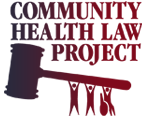by Stuart H. Weiner, Managing Attorney, Community Health Law Project
On November 20, 2009, a law was signed by former Governor Jon Corzine preventing the general public from seeing institutional lien records that had been recorded against former patients of our state and county psychiatric hospitals. This lien privacy law takes effect on November 20, 2010. The following summarizes the 2009 lien privacy law, along with a 2005 reform law that ended the practice of filing these liens. Both statutes were strongly advocated for by CHLP, along with the Mental Health Association in NJ, NAMI-NJ and Disability Rights NJ. The main sponsor and legislative advocate of both laws was Assemblyman Reed Gusciora.
For over 80 years, state law required state and county psychiatric hospitals to file a lien against all former patients for the full cost of their care and maintenance, regardless of the patient's ability to pay. As a result, patients treated at county or state psychiatric hospitals were assessed the full cost (over $400 per day) of that care and maintenance, despite the fact that most were already living in poverty and were involuntarily committed. In addition, many were kept hospitalized for long periods of time after they met the legal standards for commitment, on CEPP status, due to the lack of adequate community resources.
Upon leaving the hospital, these liens, which typically were in amounts of $50,000 or more, encumbered the individual's property and assets and adversely affected their credit rating, job prospects and ability to become self-supporting and reintegrated into the community. This was viewed by everyone involved as unfair and counterproductive.
Reform of the lien laws was also seen as a mental health parity issue. A person of similar financial means who was treated at a community hospital for a physical condition was eligible for Charity Care, which would cover the full cost of treatment, without any contribution by the patient, if his or her income was below 200% of the federal poverty level.
On March 24, 2005, Acting Governor Richard Codey signed a sweeping reform bill into law. This law, P.L. 2005, c.55, ended the practice of filing these liens against former psychiatric patients. The law extinguished all previously filed liens and allowed former patients to request that the state or county psychiatric hospital file a certificate of discharge of the lien. In addition, public psychiatric hospitals were required to apply, in most instances, the same Charity Care income standards used by other hospitals to determine whether the former patient had the financial means to contribute to the cost of his or her care. The law also liberalized the criteria for the Department of Human Services to grant a compromise of patient bills for former patients who had the financial means to contribute to the cost of their care.
The stigma of psychiatric hospitalization and the danger of identity theft remained after the 2005 reforms, due to the continued presence of psychiatric hospital liens in the public records maintained by the counties and Superior Court. This problem became more pressing as several counties began putting all of their land and property records, including these liens, on the internet. In some instances, these lien documents included the names, social security numbers, addresses and dates of birth of former patients.
The Lien Privacy Law (P.L. 2009, ch. 154) provides that, to the extent practicable, all such liens are to be identified and removed from public access. It requires the joint cooperation of: the Commissioner of Human Services; the chief executive officer of county psychiatric facilities; county clerks and registers of deeds and mortgages; and the Clerk of the Superior Court or any other public custodian of lien records. Government and government officials are immunized from liability for failing to remove a particular lien record, provided that a good faith effort is made to comply with the law.
Another important provision of the new law is the requirement that any commercial data company that has obtained a record of such a lien remove the record from its database within a reasonable time after the clerk of the county, register of deeds and mortgages, Clerk of the Superior Court or other custodian removes the lien records from public access.


